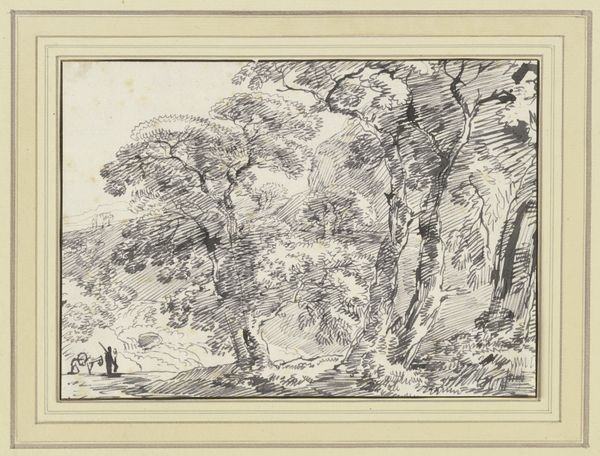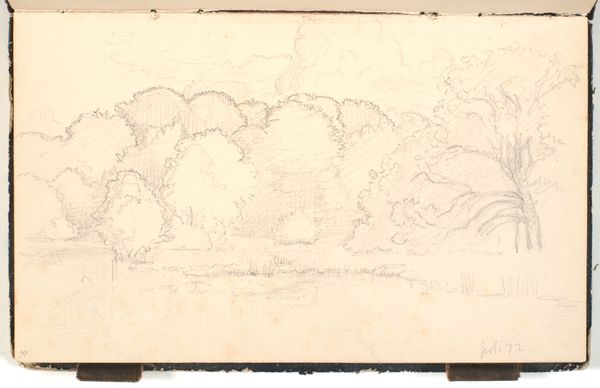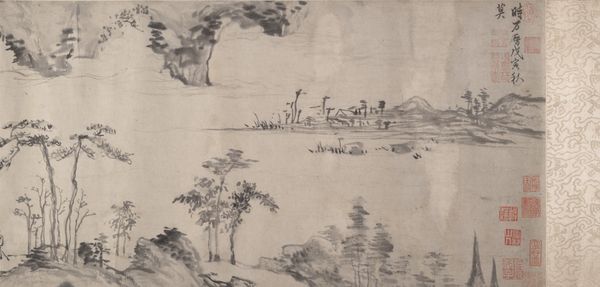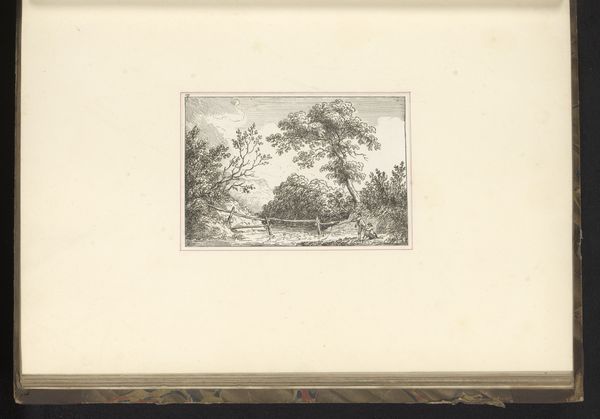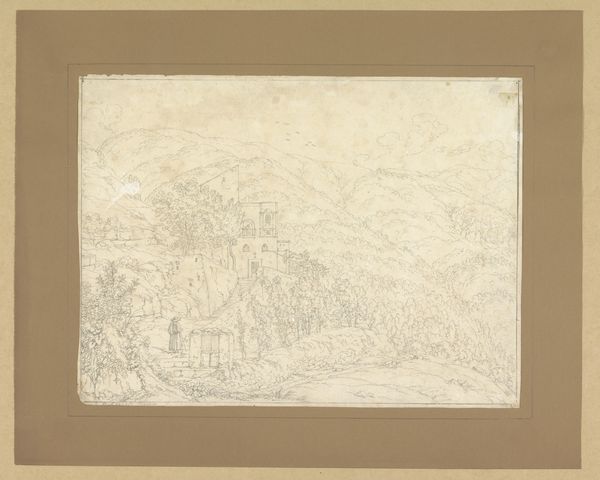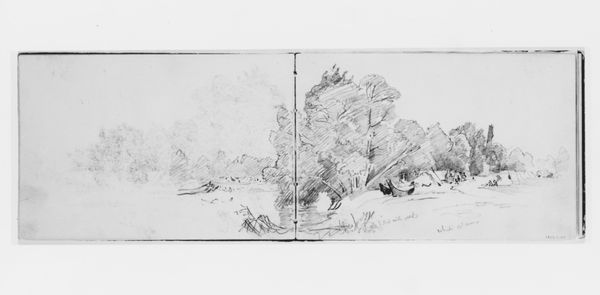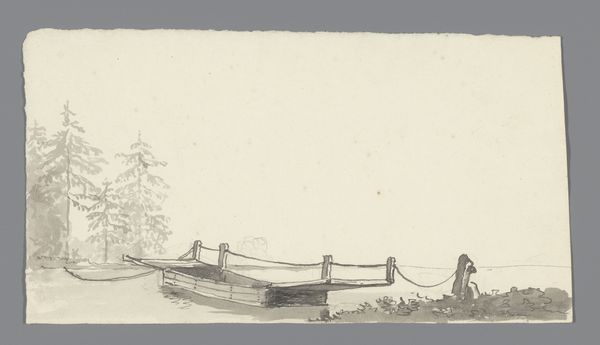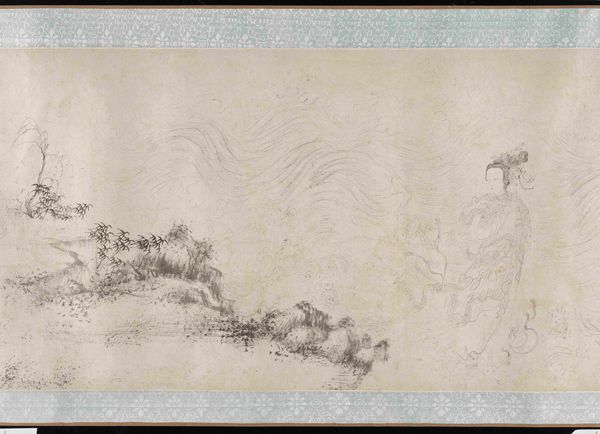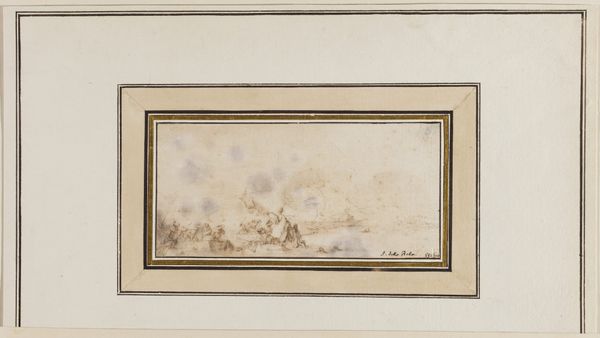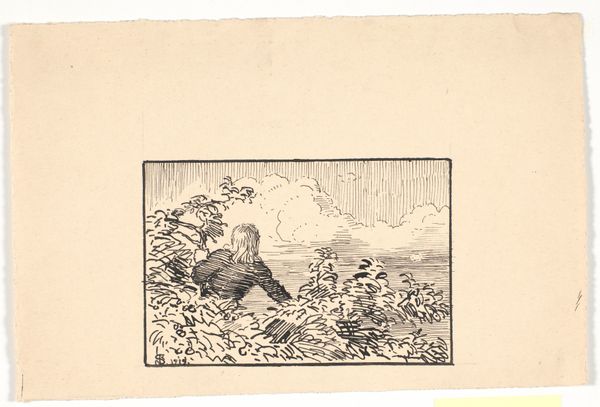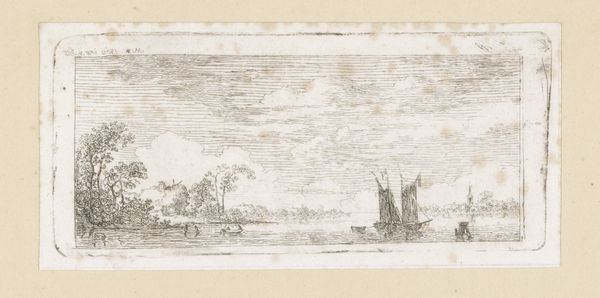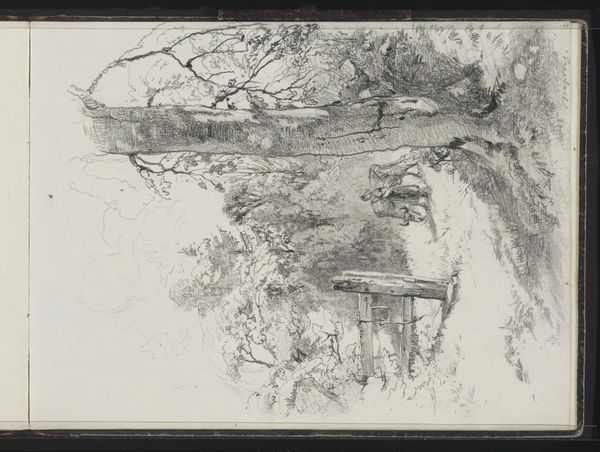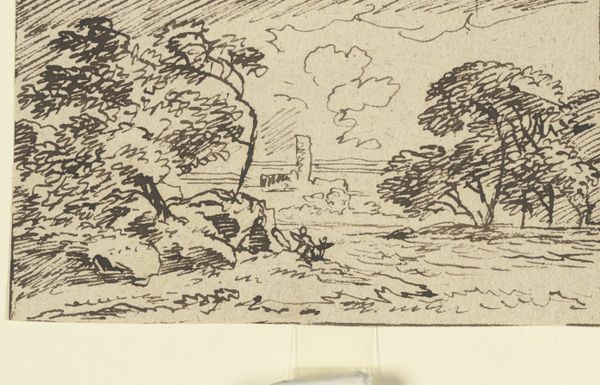
painting, ink
#
painting
#
asian-art
#
landscape
#
form
#
ink
#
orientalism
#
china
#
line
#
cityscape
#
realism
Dimensions: Image: 13 3/16 × 35 3/8 in. (33.5 × 89.9 cm) Overall with mounting: 14 in. × 31 ft. 9 in. (35.6 × 967.7 cm)
Copyright: Public Domain
Wang Xuehao made this ink on paper artwork, Presenting the Tripod, sometime between 1754 and 1832. The landscape is typical of the time, following established conventions and visual codes such as the depiction of mountains, trees, and water. But what was the role of these landscapes in Qing Dynasty China? This monochrome ink drawing speaks to a wider cultural investment in landscape painting during that time. The references to nature are not merely aesthetic; they reflect deeper philosophical and social values. Traditional Chinese painting was closely tied to the literati class, often embodying their ideals of harmony, balance, and detachment from worldly affairs. By looking at historical documents, we can understand better the social and political context in which Wang Xuehao and other artists were working. We begin to appreciate how art shapes and reflects the values of its time.
Comments
No comments
Be the first to comment and join the conversation on the ultimate creative platform.
